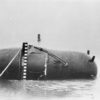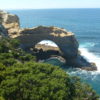Proposals for papers are welcomed to be part of a selected anthology regarding the historic moral, religious, medical, legal, political, physiological or environmental ‘corruption’ of coastal culture in the 18th and 19th century. Entries are to make contributions to a ‘New Coastal Historiography’ and develop discussions relating to a moral geography concept. The ‘corruption’ of […]








